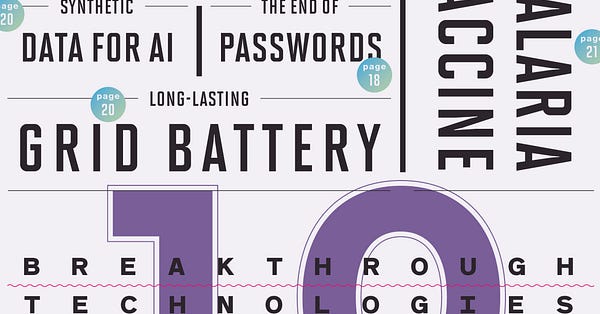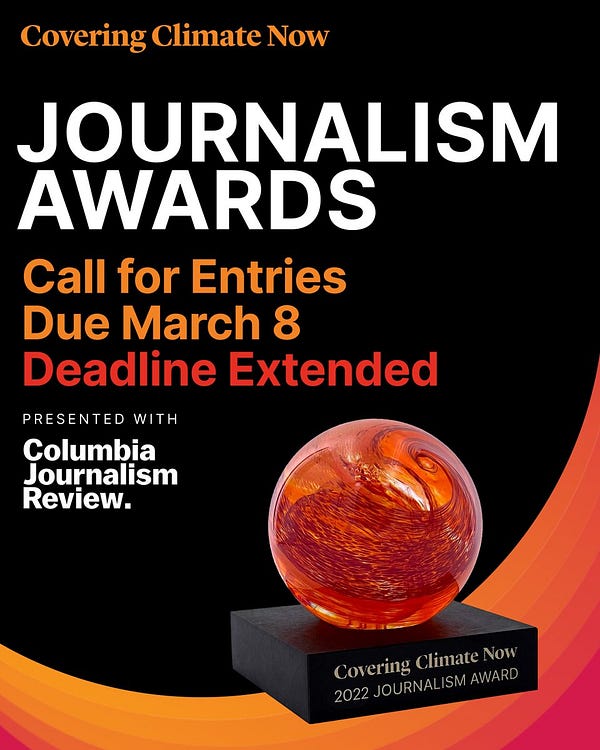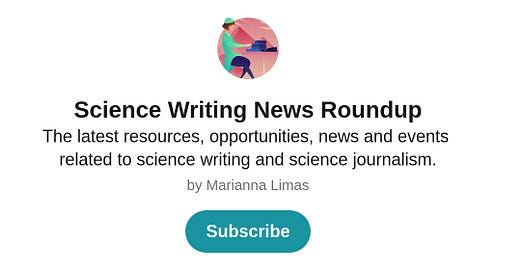✍️Science Writing News Roundup #82 (March 1, 2022)
📰 Opportunities
Apply for the 2022 Schmidt Award for Excellence in Science Communication: Submissions are accepted in six categories: freelance journalists, early career journalists, and reporting at the local/regional level (science journalism); and graduate students, early career researchers, and later career researchers (science communication by research scientists).
Apply to be a UC Berkeley 11th Hour Food & Farming Journalism Fellow. $10K to report a long form print or audio story on food, health, agriculture, and climate change.
2022 NASW Diversity Summer Fellowship: The National Association of Science Writers is offering a fellowship for students and early-career science communicators undertaking summer internships. Three applicants from underrepresented groups will each receive a $5,000 fellowship.








📨 Articles
Reporting on scientific controversy: Pedro Márquez-Zacarías, one of TON’s early-career fellows, delves into how to cover scientific controversy. The challenges of doing so, he writes, include that “technical aspects can be hard to vet, experts may be wary of taking a clear stance or speaking to the press, and everyone is frustrated.” Covering controversy well, he says, requires recognizing that scientists are people, “with egos, blind spots, and fears.”
One journalist’s journey to uncovering the truth behind long-COVID treatments. In this “How I Did It” video interview, Kiera Butler talks about why she wrote the story “Desperate patients shelling out thousands for a long COVID cure. Is it for real?”, how she found her sources and offers advice to other journalists investigating long COVID.
Dibbler dingles, worm blobs, and fossilized poop: Finding humor in science. When science news is filled with crises from climate change to COVID-19, it can feel like there’s nothing left to laugh about. Yet some journalists manage to find humor in science and satisfy our appetites for comic relief.
🔑 Resources
So you want to write a book? Part 1: Have a strong story and resilient ego. Here are six things to consider as you begin your quest to write a nonfiction book.
So you want to write a book? Part 2: Agents, queries and timelines. Newspaperman-turned-author Bryan Denson shares how he organizes his notes and timelines for books.
White papers, working papers, preprints, journal articles: What’s the difference?
‘Using academic research to keep politicians honest’: A video training for journalists across beats. This recording of a 50-minute training session shows journalists how research can be a powerful tool for holding governments and politicians accountable and fighting disinformation.




📺 Videos
IPCC Press Conference - Climate Change 2022: Impacts, Adaptation & Vulnerability
Does Science Communication Still Work? (AAAS Annual Meeting)
Meet Authors of the U.N. Report on Global Warming Impacts, Vulnerability and Adaptation
🎁 Events
Science Through Story Workshop: Developing Science Stories (March 5, 2022)
Genomics and the Media: Joe Palca, Science Correspondent, National Public Radio (March 8, 2022)
Taking a Bite Out of Climate Change: A Conversation with Pat Brown of Impossible Foods (March 9, 2022)
The Power of Narrative conference (March 18-19, 2022)
🌅 Jobs and internships
Freelance Social Media Specialist, Schmidt Ocean Institute, Remote
Engagement Editor, Spectrum, New York City, NY
Climate, Health and Justice Reporter, Inside Climate News, Remote
Senior Editor, Health & Science, The Philadelphia Inquirer, Philadelphia, PA
Science communications expert, VIB, Ghent, Belgium
Asia Community Manager, Climate Tracker, Asia
Health and Science Editor, Vox Media, Remote
Climate Editor, Vox Media, Remote
Communications Assistant, The Stanford Center for Ocean Solutions, Stanford, CA
Science Writer Intern, Chemistry World, The Royal Society of Chemistry, UK-based
Staff Writer on Biotechnology, WIRED, UK/US
More jobs 👉 Science Writing News Roundup #81
👉 Don’t miss any updates from the Science Writing News Roundup:
Thanks for reading. How about sharing this with a friend? Worried you missed something? See previous newsletters here. What would you like to see in the newsletter? Please send me your suggestions by replying to this email: sciencewriting@substack.com😃


